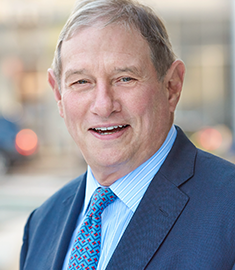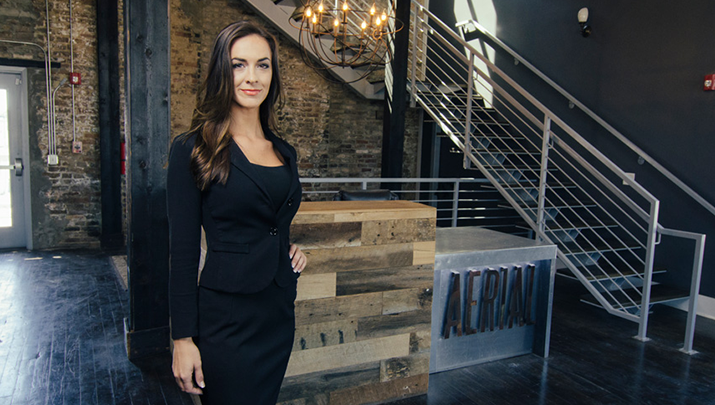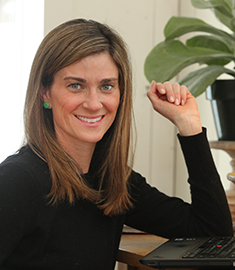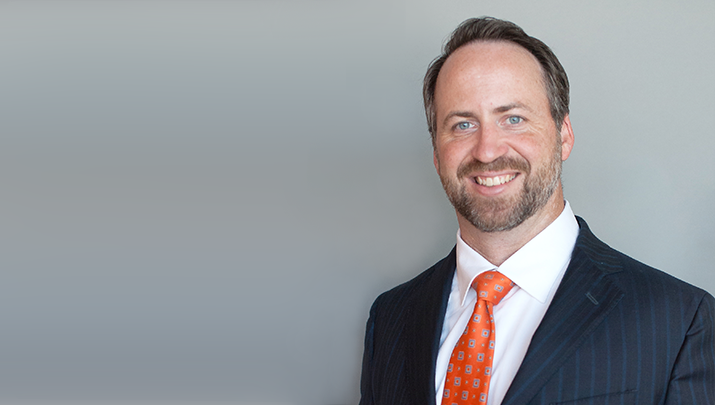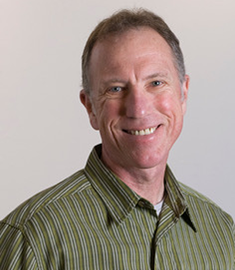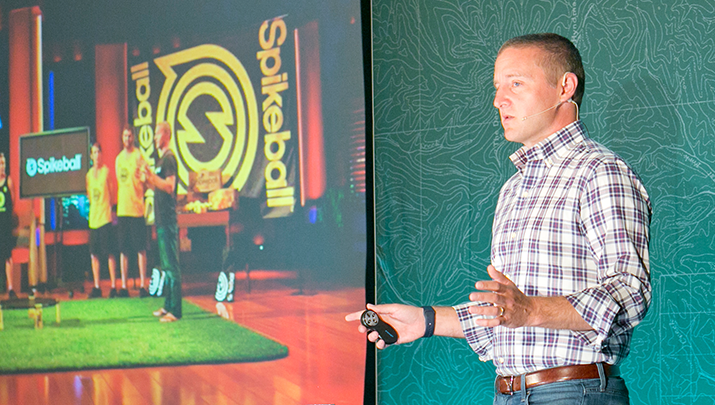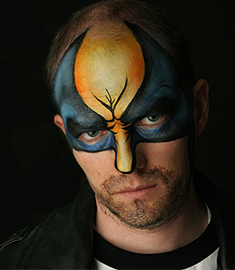What Can Evergreen Companies Learn From Family Businesses About Long-Term Survival?
Being a multi-gen family business is no easy task. The death rate (either through merger, sale or other means) is so high that this may mean that there are no general rules for survival, only exceptions. The principle of Survivorship Bias applies — maybe multi-gen survival in the family business context is a random phenomenon, in which case, this article may not be of much use.
What makes the study of family business interesting is just how highly differentiated the best practices are among successful multi-gen businesses. What works for one family may be anathema to another. Yet, the collective best practices form a mosaic from which we can discern some key strategies and themes. Those are what I wish to share with you today.
Before we start on this journey, you should ask yourself if being perpetual, or multi-gen, is really an appropriate goal at all. What will perpetual existence accomplish? Is this just about you or is there a larger Purpose? Businesses come and go. Fast-growing businesses and large businesses generally have increased risks of failure. Is what you are seeking realistic, sensible, shared?
As this question relates to family businesses, realize that many multi-gen family businesses in existence today were not predestined to become multi-gen. Much depends on timing, luck of the draw and the fit of offsprings with an opportunity, in terms of both age and stage. Necessity also plays a major role, as in a founder becomes ill and the next in line just takes over — that is how families work. I am sure many multi-gen success stories would embrace the statement of “had we known how hard this is, we would never have tried doing it.” Words worth remembering.
Here are the top 10 lessons (inverse order) that family businesses have to offer:
10. Good hygiene (and we don’t mean in the personal sense). This means that all of the equity ownership is controlled by a single person or entity that has a very long life. And make sure that there are no forced sales of equity to liquidate estate tax liabilities or other third-party liabilities, such as a divorce. For family businesses, this is a sine qua non. Fight procrastination.
9. Embrace professional management at all levels. This is particularly hard for family businesses. You must have first-rate human resources processes, and cultural fit is a big issue. You also need rigorous compensation and employee performance evaluation rules. For family businesses, the rules governing family hires need to be spelled out and followed.
8. A liquidity mechanism must exist for nonbelievers. No family can keep all of its members happy all of the time. A way to buy out family members on an acceptable basis (note: I did not say fair basis) is almost always necessary. Likewise, family situations change and a structure that prevents the exercise of free will is doomed to fail. Having an escape mechanism that is available, though never used, may be the key to maintaining solidarity.
7. Strong governance is essential. This is a process, not just an occasion. There must be a board, and it must function. Having independent directors with relevant industry and leadership expertise is very important, although some family businesses survive without this. Good governance that assures the alignment of the interests of stakeholders and managers is essential.
6. You must plan for the predictable life cycles of business and ownership. There will always be ownership and management succession issues — you must plan for them well in advance and have processes in place to address them.
5. Embrace Deans’ Twelve Questions. Is it a good idea not to sell or go public? Know what you are foregoing and why. Do this on an annual basis. Make the stakeholders commit in writing to the plan.
4. In the context of a family business, you must procreate but not too much! You also need the right kind of procreation — preferably passing on the “good” DNA of the founder of the business and little else. For an Evergreen company that is not a family business, this means you must have a way to perpetuate ownership for the future — either sale to management or other employees or donating stock to a nonprofit entity or some combination of these. Someone who shares your vision must always own and control your business — not easy, but examples exist.
3. For family businesses, family harmony is extremely important. For companies aspiring to be Evergreen, you need harmony among all stakeholders — have you identified them? Don’t forget spouses and the families of key constituents … unhappiness is highly contagious.
2. Have a purpose or reason for existence other than longevity itself. Family businesses that survive and thrive have a purpose that motivates all participants to work together for a common goal. More money is not a purpose. Have a mission that motivates the behavior you want. For families, legacy is often a driving force. Stewardship is a key concept.
1. Have a good business. Avoid cyclical industries, avoid leverage. A slow-growing business in a defensible niche may be just the ticket. Profitability needs to be sufficient to enable stakeholders to achieve financial independence outside of the business.
Spencer Burke is the Executive Vice President at The St. Louis Trust Company.
The Future of Capitalism
For Britnie Turner, Purpose and Profit are intimately tied together without having to sacrifice one for the other.
In her talk, Britnie shares that she had a dream when she was 12 years old about doing mission work in Africa and committed herself to it. She realized that she had to find a way to take her natural talents and create a profitable business in the U.S. first, before turning her attention to Africa. She believed if she could turn around the worst neighborhoods in Nashville, ones with homes occupied by drug addicts, she would learn the skills and business models needed to turn around any neighborhood in the world. At 28, she is well on her way with Aerial, now the second-fastest-growing business in Nashville.
My Father’s Unexpected Gift
Abt Electronics was founded in 1936 by my grandparents. In the midst of the depression, David and Jewel Abt pooled their total savings of $800 to open a small storefront in Chicago’s Logan Square neighborhood.
My father, who passed away last year, started working full time at the family electronics store in 1953 and eventually took over the business. He and my grandparents were both Evergreen before there was a term for it. While the world has changed around us, we’ve stuck to their core values: Treat your employees and your customers like family, and you can grow on your own without needing to look for outside investors. Today, our employee family totals over 1,450.
That doesn’t mean there haven’t been hard times. The consumer electronics landscape has changed dramatically over the past 15 years. Thanks to Amazon and the internet in general, you can order anything you want, from toilet paper to a 60-inch flat-screen television, without leaving your house.
Consumers who venture out are likely to visit a big-box store like Sears or Best Buy if they want electronics.
My father and I had to adjust to these very real competitors over the years, but we did it in a way that always kept our customers and our employees at the center of our universe.
If you’ve been to a big-box store lately, you may have noticed the customer service was, shall we say, lacking. That’s because these stores have become so focused on the returns they are giving their investors that they’ve forgotten about the people who are their front line in any transaction.
We’ve countered that by empowering our salespeople. If someone walks in and shows a lower price, our employees can make the right decision without involving a manager. We give them the space to really help customers because their bonuses aren’t solely based on sales. Showing up on time and going above and beyond to offer our customers great service is reason for a bonus.
For example, on the Saturday before the Super Bowl, we had three separate people come in and buy flat-screen televisions for the game. Instead of the usual next-day delivery, our salespeople delighted the customers by offering same-day delivery to make sure the televisions were set up and working in time for the big game. This was easy to arrange because our salespeople didn’t have to ask a manager or owner before they made the offer. They know if it’s good for the customer, we’ll always back it up.
My father also insisted that we pay our employees more than our competitors pay their people. This helps make them feel that they are part of the Abt family. We’re able to do this because we keep every aspect of our business in-house. People will tell you that outsourcing is cheaper but not when it comes at the expense of quality.
We have our own drivers, servicemen, repairmen, gas station, woodshop and solar panels, and we even have our own backup generator. So, if something goes wrong — and in real life things can go wrong — we have someone right there to fix it or make it right. Our builders can make a custom stand for a television or a panel to help a refrigerator look nice if the space around it is too big.
Not only does this save money and time because we don’t have to track down contractors when something goes wrong, but it also maintains our reputation for excellent service and keeps customers coming back.
The proof is in the numbers and in the multiple awards we have won over the years — the Better Business Bureau’s Award for Market Place Ethics in 2017, Chicago’s Top Workplaces in 2016 and Top Places to Shop in the 2016 Consumer Reports magazine, to name a few. In 2016, our revenues grew 7% while revenues at other electronics companies declined.
Watching my father spend his lifetime putting our family’s core values into practice makes it easier for us to lead our business today. We watched, we learned, and we grew. But, his last action will ensure that we never lose track of who he was and what he taught us.
Soon after my father passed, my brothers and I learned that he had taken out a second life insurance policy we knew nothing about. But this policy wasn’t for us or our families or to handle any tax requirements. Instead, he had taken out the $10 million policy on behalf of our employees who had been with us two years or more. Almost everyone received a check worth $4,000 or $8,000 as a final gift from my father. The outpouring of gratitude and words of kindness for my father and our family left me in tears.
As we continue to grow this third-generation company, the memory of my remarkable father motivates us every day to be better and do better. To the very end, he put People First and trusted good things would happen. We will carry that core value and his wisdom with us forever.
Mike Abt is the Co-President of Abt Electronics.
VIDEO: What Evergreen Entrepreneurs Can Learn From Pixar
This is our first time featuring a third-party video. Occasionally we come across memorable content that we feel embodies the ethos of our members and the Evergreen movement. We’d like to share these ideas with our broader community with the hope that you, too, will find it valuable.
What made Frozen the highest-grossing animated movie of all time? If you ask Ed Catmull, the president of Pixar and Walt Disney Animation Studios, he'll tell you it's all about Pixar's fabled Braintrust, a nonhierarchical group of passionate storytellers who meet every few months to hold a frank discussion of films under development. In this video, Catmull explains what makes the Braintrust so successful, including its members' willingness to talk about any idea without fear of embarrassment, and the fact that it has no actual authority. Creatives who don't feel pressured by their peers are much more likely to embrace their suggestions.
Nurturing An Evergreen Business And An Evergreen Family
Most days, I work in my office in downtown Ketchum, Idaho. It’s quiet and has plenty of room for me to spread out merchandise samples that I’m considering for my Pappy & Company website. But today, my son’s sitter called in sick, so I am handling a few calls from home and tending to his 2-year-old needs.
And I’m not panicking about it. Work-life balance is one of my greatest joys as an Evergreen owner. I work less in the summer months to enjoy vacations with my family, and then I pick up the pace during the school year and the crazy holiday season. As the kids get older and gain their independence, I will put my additional free time into my work.
But Pappy & Co. is not a lifestyle business. It’s something that will keep growing. We’ve doubled our revenue every year since my two sisters and I launched this company three years ago. We’re adding new product lines every month. I am determined to make our merchandise as high-quality, popular and profitable as my family’s famous bourbon.
I’m building a 100-year company just like my ancestors did. Long-term growth is in my blood. My great-grandfather, Julian “Pappy” Van Winkle, started a distillery in 1910 and named one of his pre-prohibition whiskeys Old Rip Van Winkle. Years later, my grandfather took over the company, and sold the distillery and every brand except for one: Old Rip Van Winkle.” Our bourbon has been recognized as one of the most popular in the world.
We didn’t get here through fancy or expensive marketing. We’ve been successful because our Paced Growth meant that customers could discover our bourbon, share it with their friends and become our best ambassadors. Without outside investors, we’ve been able to grow organically and not try to force the business into someone else’s idea of growth.
That is truly the Evergreen spirit — which we’re also embracing at Pappy & Co. We started as a merchandise company for a famous bourbon brand, but our company is really a natural extension of our family. We sell barware that reminds us of our grandfather, maple syrup that our children spoon up at breakfast and hot sauce our husbands are obsessed with. We plan to add a men’s clothing line inspired by Pappy, leather and canvas goods and a female-centric corner to our home items section. Our long-term goal is to extend our lifestyle brand beyond our core bourbon fans.
I am doing all this with a strong appreciation for the Evergreen principle of Paced Growth. Striking a work-life balance is honestly hard work itself sometimes. Every morning, I make sure I have a list of big things that need to get done. But I don’t beat myself up if one item goes unchecked. Since my days are often divided between the job and family, I tend to eat lunch at my desk and work straight through the busiest part of the day. I include my family, even my children, in as much of the business as possible. They see me hauling boxes, they help me sort the samples, and they test out the products.
I’m raising my Evergreen company the same way I’m raising my kids — both with strength and values. Pappy & Co. will be a part of our lives forever and will be a business I hope my children will continue to value and feel proud of. That’s something worth nurturing.
Carrie Van Winkle Greener is the CEO of Pappy & Company.
Don’t Throw Shade
“ ‘Don’t throw shade’ is what the kids are saying these days,” says John Garrett, founder and CEO of Community Impact Newspaper. “Basically what that means is ‘Don’t rain on my parade.’ ” That’s the message he has for detractors who think he’s crazy for running a print news company in 2017.
Garrett says that like David facing Goliath, Community Impact Newspapers is up against modern-day media giants — not Cox or Hearst, but Facebook and Google. In the Bible, David, an expert slingshot marksman, selects five smooth stones to fell Goliath. In this entertaining video, Garrett describes his company’s armament — five values that bolster its courage in a difficult market — and outlines the open-book management process that motivates his staff.
The Uneasy, Long Road: Why Building An Evergreen Business Takes Perseverance
Deciding to build an Evergreen company was the best decision I ever stumbled into.
When I started Plus3 in 2007, I figured I would need a bunch of investment money to get off the ground. Plus3 adds a charitable twist to the idea of employee wellness, and from what I knew of the health care space (which at the time wasn’t much) it was expensive to get your foot in the door.
But when venture capitalists didn’t seem interested in my idea, I saw it as a great opportunity. By making a go of Plus3 on our own (with seed capital from friends) my partners and I could follow our Purpose and build a company the marketplace didn’t realize it needed.
It hasn’t been easy.
Plus3 is the third company I’ve founded. The first two, RSD3 and GaleForce Sports Marketing, were big enough successes that I didn’t have to worry about my family’s financial security. But I wanted to start one more company before hanging it all up — one filled with emotional currency, not just cash on the bottom-line.
Like many people, Plus3 co-founder Joe Fabris and I were alarmed by the growing trend of obesity. We wanted to find a way to get people off of their couches and taking better care of themselves. Our idea to do that was simple. People want to help other people. So if you tie their wellness goals to employer-sponsored charitable giving (the better they do, the more money that goes to charity) not only will you raise money for worthy causes but you’ll also give people a strong emotional reason to stick to their health goals and feel better about the place they work. By using our platform to tie wellness and giving together, employers could build a healthier, happier and more motivated workforce. (Employers pay a small “per-employee” monthly fee for our service.)
We’d seen the power of this idea when we ran a public trial of the program before we started selling it to big companies. People seemed to love the concept, and we felt confident enough to start working on sales.
But when we spoke with human resource leaders and C-suiters, we hit a roadblock. Although our meetings went great and people said they loved the idea, we couldn’t close a sale.
I’m not going to lie. That felt like shit. But we were pitching an innovative approach to people at these large companies who when it came to HR programs were risk managers, not risk-takers. None of us had health care experience, which made our idea a little scary to them. And at the time, wellness programs were based on individuals improving their clinical health numbers for personal rewards, usually cash bonuses. Get your weight or your blood pressure down to a certain number and you get cash. Our idea — that charitable giving was more motivating than cash — wasn’t intuitive to most of the executives we met. And at the time we had few case studies to defend our employee wellbeing solution
But we Persevered. I am not a quitter, and I knew that no matter what, I was not going to give up on this idea. We were all buoyed by enthusiastic emails we got from individuals who were using the program. Ahnu Shoes was one early adopter. Watching how much their employees and retail customers loved the program helped a lot.
But we often had to find more ways to keep spirits up internally. We had enough money to pay our staff, but salaries were well below what they deserved. My partner Joe and I took no salaries during those years. To show our appreciation to our few employees, whom I dubbed “The Daily Grinders,” we’d do things like give surprise bonuses — say, $1,000 toward a new baby’s college fund — when the team knew we were cash poor.
Then there were the nonfinancial ways I motivated my team. I always encouraged my employees to have side projects, to pursue whatever they wanted as long as their Plus3 job got done and they could jump all in if we needed them to.
Those small things helped get us through the tough times, and in 2012, we finally started to see the light at the end of the tunnel. We pitched our product to Heffernan Insurance Brokers, a Walnut Creek-based company that sells products like ours to bigger companies.
Not only did they agree to partner with us to sell Plus3 but they also signed on to use the system. It was that one in 10 meeting where someone deeply embraces your vision and has the courage to get behind you.
I knew that if these guys got it and wanted to use it, others would too. Two years later my feelings were validated when the global technology company Cobham signed on. At the time, only 5 percent of their 4,000-person workforce was using their very traditional wellness program that linked wellness success to clinical improvements and cash rewards. They signed a two-year agreement with us and the results have been amazing. Almost half of their business units are at 40 percent participation. That means we’re helping a lot of people in that company get healthy and raising a lot of money for charity.
We’re starting to feel the growth really take off. Last year our revenues doubled, and every single one of our clients renewed their contracts with us.
On my computer, I have a little window in the corner that shows how much money our platform has raised for charity. Every time someone goes for a walk, drinks enough water or eats five fruits and vegetables in a day, that number ticks up. So far, we’ve raised over $2.5 million, which is going to great causes like the International Red Cross, Wounded Warriors and Alzheimer’s research. If we had taken venture capital money when we first started, I doubt those investors would have had the patience to allow our vision to come to life. It’s likely that they would have pushed us to “pivot” or sell to get them back some of their investment. As my team and I watch the charitable number tick up, I’m grateful we found the Evergreen path for our clients and their employees, our charities and us — The Daily Grinders.
Rick Sutton is the co-founder and CEO of Plus3.
Spikeball’s Accidental Community
In 2003, while on vacation with his brother and some friends, Chris Ruder pulled out a battered toy he loved to play with on the beach and a phenomenon was born. He realized the game, which he later named Spikeball, might have universal appeal. He was right. Here, Ruder recounts the formation of his company and the role community has played in its success. "They are 99.9 percent of the reason we've done so well," he says. His story teaches Evergreen leaders the value of learning to listen when the marketplace speaks — both at the inception of a company and throughout its evolution.
Picture Perfect: Being Evergreen Means Having the Power to Help
One of the things I value most about being an Evergreen CEO is that I can make decisions that I think are right for my company — without having to check with a fleet of investors. Being Evergreen gives us the independence that helped us make one of the best, if not the most profitable, decisions we’ve ever made.
Here at SmugMug, photos are our passion. We were first a family of photographers; now we are a family business that cares for billions of other families’ photos.
So when I heard through the grapevine last year that online photo storage service Picturelife had suddenly shut down, I wanted to help. More than 220 million photos and videos were completely lost to customers when Picturelife went under.
Picturelife CEO Jonathan Benassaya agreed to let us help, after he’d convinced his own investors and creditors this was the right thing to do. For more than two months last summer, my employees and I worked with technicians to recover the lost photos. We gave every Picturelife patron a free SmugMug account for 30 days, no credit card required. That gave them time to download every one of their photos using SmugMug tools and then choose to remain with us or move on with their memories. Tens of thousands of people took advantage of this offer.
The only reason we were able to do that was because we are Evergreen.
If I had even suggested such a proposal to a board or to investors who valued financial returns above all else, the deal would have never seen the light of day. Having run the numbers ahead of time, it was clear that SmugMug would lose money in this process. It took a lot of human effort, bandwidth, servers and storage costs to move these photos somewhere safe so people could get them back.
But many of our 135 employees agreed to work overtime — nights and weekends if necessary — as volunteers on this project. For them, it was a no-brainer because this is our Purpose — saving priceless memories so they can be celebrated.
Their enthusiasm stems from our efforts to always put our People First (another Evergreen principal). It’s an idea I’ve championed since I started SmugMug 14 years ago with my father. We consider our employees superheroes. Last year we even did a photo shoot where we turned our Support Heroes (who deal with customer concerns) into actual superheroes, on top of a San Francisco skyscraper, with costumes and everything. The resulting photos, all done without green screens, were a remarkable testament to the people who work with us. In 14 years, only three of our Support Heroes have resigned.
Taking the time to care for your employees mixed with the independence that comes from refusing all outside investments gives Evergreen CEOs tremendous opportunities.
While we’ve offered our help to lots of failing photo-sharing sites over the years, many have asked us to buy them for more money than we can afford. Picturelife just asked for our reassurance that we could help its customers. While we did end up with a few new paying customers from the effort, it wasn’t enough to make up for the money and time we spent saving those photos, and we never expected it to be.
I don’t want to downplay the effort this took. I don’t know that it’s something we could repeat over time. But when we assess the true financial cost of saving the Picturelife photos, I know that everyone at SmugMug would agree that if given the chance, they would do it again.
Don MacAskill is the CEO & Chief Geek at SmugMug.
What Would You Tell Your 24 Year Old Self?
Imagine if you could manipulate space and time to send a message to your younger self that might put you on a swifter and surer path to success and happiness. In this candid video, Tugboat Institute members share what they wish they’d known when they were 24 — advice on being brave, staying true to oneself, exercising patience and other cornerstones of Evergreen entrepreneurship.
Featuring: F.K. Day, Carrie Van Winkle Greener, Amy Simmons, Jed York, Chris Mittelstaedt, Howard Behar, Lisa Rissetto, Bill Betts, Jess Rovello, John Duffy, Melanie Dulbecco and Mac Harman.
